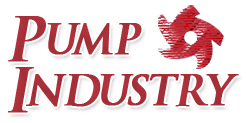Several sectors are projected to rapidly utilize automation technologies to reduce human error, lower manual intervention, and refine operational efficiency. Pump control panels might play a significant role in automating the monitoring and operation of pumps. They might also allow sectors to optimize their processes and save energy.
Modern pump control panels provide remote monitoring and control features rather frequently. This is especially useful when pumps are situated in inhospitable or dangerous settings. Remote monitoring and control of pumps might improve safety, lower maintenance costs, and enable rapid problem-solving.
Predictive maintenance might also be made possible by the incorporation of detectors and data processing in pump control panels. Companies are set to identify prospective failures or maintenance requirements by examining pump data before they develop into breakdowns. This anticipatory strategy would help to lower maintenance expenses and downtime.
In water distribution systems and wastewater treatment facilities, pump control panels are frequently utilized. A greater need for effective and trustworthy water management systems is emerging across the globe.
It is attributed to the ongoing development of urbanization and emergence of strict environmental restrictions. Pump control panels might aid in ensuring correct waste disposal, water treatment, and distribution.
Businesses are putting more effort into lowering energy use and environmental impact. Pump control panels might help in improving pump operation.
It is set to modify flow rates and speed in response to demand in real time. This energy-efficient strategy is expected to reduce costs while supporting sustainability objectives.
Diverse pump control strategies are needed for several sectors and applications. Modern control panels might provide the freedom to tailor pump operations to particular needs of each process. They are hence projected to be appropriate for a wide range of sectors due to their versatility.
Oil & gas, agriculture, and mining are a handful of sectors that are rapidly expanding. Pumps are expected to be used in these sectors for several tasks, including material handling, cooling, and fluid transportation. Need for effective pump control systems might hence grow by 2033 as these sectors develop.
Construction and other infrastructure projects need effective water management systems. Pump control panels are likely to be crucial parts of these systems as they might help infrastructure development projects succeed.
2018 to 2022 Industrial Pump Control Panel Sales Outlook Compared to Demand Forecast from 2023 to 2033
The global industrial pump control panels market is likely to witness a CAGR of 4.9% in the assessment period. It recorded a CAGR of 5.7% in the historical period between 2018 and 2022.
Demand for intelligent and interconnected systems is set to be driven by growing digital evolution of sectors worldwide. Industrial pump control panels are projected to develop to become a component of broader digital ecosystems. These might enable seamless connection with other operational and surveillance systems.
Environments that are harsh and difficult are present in several industrial applications, including mining, chemical processing, and oil & gas. It is further projected to push the need for safe and efficient operations. Hence, key players might develop new panels that can endure harsh temperatures, abrasive chemicals, and other challenging circumstances.
Companies are being compelled to embrace cutting-edge control and monitoring technology by strict laws relating to security, quality of life, and energy efficiency. Manufacturers might supply control panels with built-in security measures. Development of novel products with data recording features is also expected to meet these compliance standards.
Businesses are also making investments in effective water management strategies as water shortage becomes a global issue. Pump control panels are considered essential for streamlining water distribution and use.
Water shortages affect about two to three billion individuals worldwide. If international collaboration in this field is not increased, UNESCO and UN-Water warn that these shortages will get worse over the next several decades, especially in cities. Urban inhabitants who lack access to clean water are predicted to triple in number by 2050, from 930 million to 1.7 to 2.4 billion. Extreme and long-lasting droughts are growing more prevalent, thereby pressuring habitats and harming both plant and animal species equally. Industrial pump control panel demand is expected to rise to curb water scarcity.
Latest Industrial Pump Control Panels Market Trends Provided by Future Market Insights (FMI)
- Use of remote update capabilities for control panel software to ensure the latest features and security patches is a leading trend.
- Emergence of unique control panels with a focus on recyclability and energy efficiency is a significant trend.
- Adoption of 3D printing and rapid prototyping for faster development of control panel prototypes is a key trend.
- Automation of processes to ensure regulatory compliance with minimal manual intervention is a significant trend.
- Utilization of open source software and platforms for high flexibility and customization might create new opportunities.
- Improvements in algorithms for more accurate predictive maintenance and failure predictions are expected to aid demand.
Competitive Landscape
Industrial pump control panel manufacturers are focusing on creating and integrating innovative technologies into their in-house products. They are including features such as energy efficiency enhancements, internet of things (IoT), predictive maintenance, remote monitoring, and data analytics to stay competitive.
They are also delivering customizable solutions that cater to specific needs of different sectors or applications. They are providing options to configure control panels to match unique requirements of their customers.
A handful of other players are prioritizing energy-saving features, as well as supporting the environmental benefits of their products. This would help to attract environmentally conscious customers worldwide. Energy-efficient control panels that enhance pump operations for lower energy consumption can be a strong selling point.
They are further keeping a close watch on market trends, customer preferences, and emerging technologies to stay ahead of the competition. They are adapting products to cater to several market demands, which can be a competitive advantage.
Source: Future Market Insights



